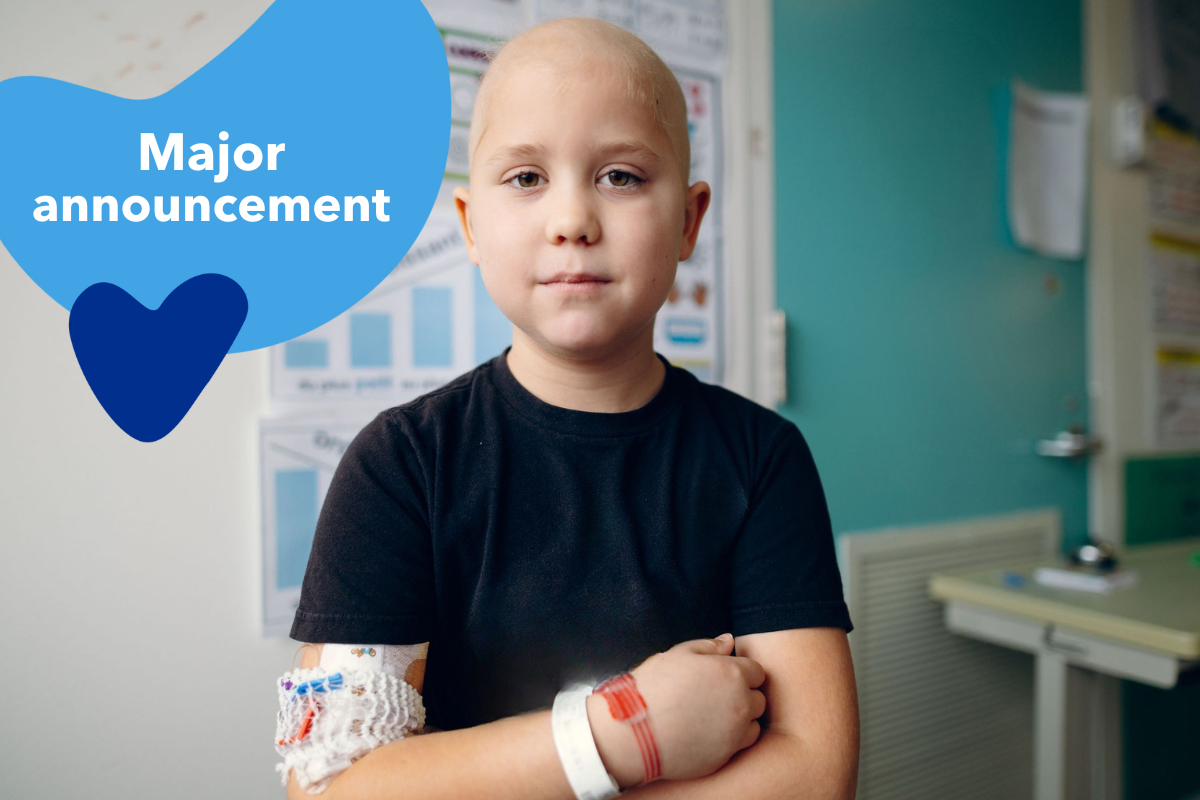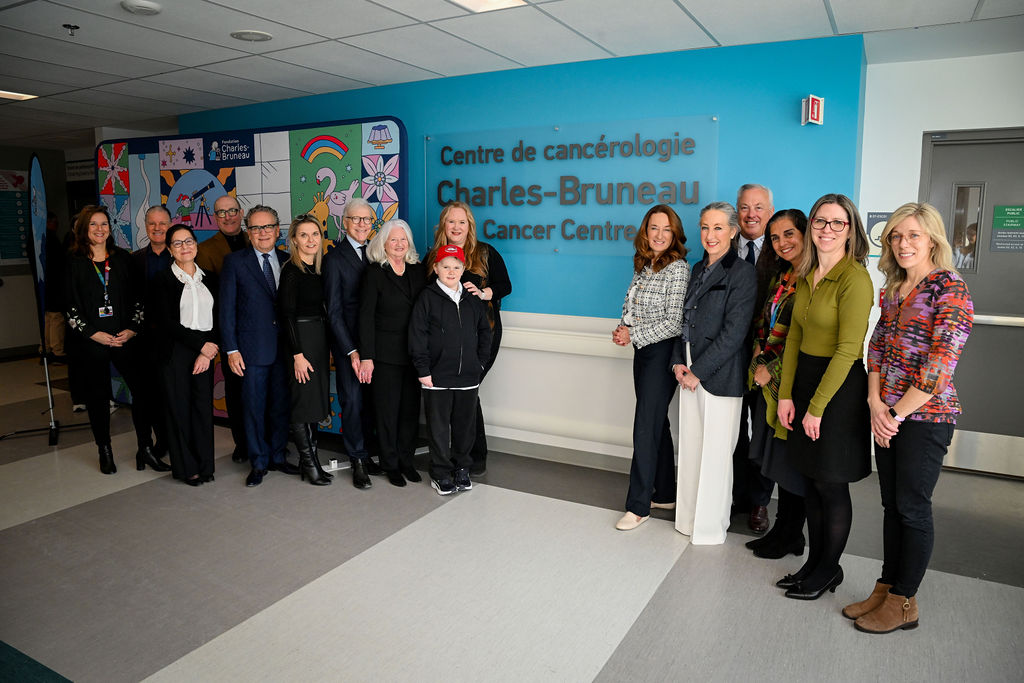A pathbreaking project financed by the Fondation Charles-Bruneau leads to major advances in the fight against cancer among children

Thanks to funding from the Fondation Charles-Bruneau, genome sequencing is now available to all Quebec children as a result of a transformative research project aimed at better diagnosing pediatric cancers and identifying their genetic anomalies. This significant leap forward ensures that each young patient can receive personalized treatment, thereby increasing their chances of recovery while reducing the side-effects associated with treatment.
The Fondation Charles-Bruneau is proud to announce major advances in pediatric cancer. While pediatric cancer recovery rates have remained stable in the past 10 years, with 70% of affected young adults dealing with the side-effects of treatment, this significant new initiative marks a major change for the better.
Under this molecular profiling project initiated at the CHU Sainte-Justine, dubbed “Signature,” the genetic signature of pediatric cancers can be established on a Quebec-wide scale. The project was made possible by historic commitments undertaken by the Fondation Charles-Bruneau. In addition to investing more than $10 million between 2016 and 2021 to lay the groundwork for the Signature Project at CHU Sainte-Justine, the Fondation Charles-Bruneau in 2021 reaffirmed its support by earmarking more than $25 million in part to accelerate the deployment of genome sequencing at every pediatric care centre in the province.

A genetic signature used to specify treatment
Led by a team of researchers and clinicians in hematology-oncology at the CHU Sainte-Justine, the Signature Project paved the way for the development and validation of a personalized care approach adapted to the specificity of diagnoses. Its success reaffirms the Fondation’s vital position as a driving force behind funding for pediatric cancer research.
In concrete terms, high-throughput genome sequencing technologies make it possible to detect alterations in DNA. Researchers and clinicians in hematology and oncology are thus able to classify tumours into distinct pathological subtypes and establish a more accurate diagnosis by making treatment more effective and reducing the side-effects associated with them.
“This advance represents a major turning point in our approach to pediatric cancer treatment. For the first time, we can draw on an approach that pairs scientific innovation with personalized care and unprecedented inter-institutional collaboration. The potential benefits, in terms of improving recovery rates and the quality of life of young patients, are nothing short of immense. This type of innovation, essential to the progress of pediatric medicine in Quebec, is made possible thanks to sustained investments in research and to the philanthropy that acts as a driving force in our society.”
– Dr. Sonia Cellot, Hematologist-Oncologist at the CHU Sainte-Justine’s Centre de cancérologie Charles-Bruneau, and researcher at the CHU Sainte-Justine’s Centre de recherche Azrieli
A project now managed by the government
Since 2023, the Ministère de la Santé et des Services sociaux (MSSS) and now Santé Québec have taken charge of these genomic tests so that all Quebec children can reap the benefits of this major advance. This approach marks a noteworthy milestone in the health sector, as it is one of the world’s most detailed genetic and biological tests in the pediatric cancer field. This sequencing program was deployed thanks to the Centre québécois de génomique clinique (housed at the CHU Sainte-Justine) and the Réseau québécois de diagnostic moléculaire (RQDM), which were established by the MSSS to support the development of clinical genomics within the health care network.
As the only province that offers genome sequencing to investigate pediatric cancers on a clinical basis, Quebec has staked out a leadership position in Canada and internationally.

Philanthropy in the service of innovation
For the Fondation, which has worked alongside its partners for more than 30 years to improve outcomes for all Quebec children with cancer, this announcement represents a major step forward. The project directly meets its objectives in that it promotes innovation while financing emerging initiatives with the aim of demonstrating their relevance and ensuring that one day, they are institutionalized by the State.
In addition to contributing to Quebec’s potential in relation to health, the Fondation Charles-Bruneau’s leadership and vision help promote improved synergy between the four university hospital centres serving clients in pediatric hematology and oncology. Given that the CHU Sainte-Justine team is leading the Signature Project, the collaboration has given rise to improved knowledge- and data-sharing and to Signature’s implementation on a province-wide scale.
“A core component of our mission is to support innovative initiatives that build bridges between leading-edge research and the care offered at the patient’s bedside. To see this project, funded entirely by the Fondation Charles-Bruneau thanks to unwavering support from its donors and partners, not only bear fruit but lead to major advances that improve health outcomes for young people, has been a source of immense pride for the entire team. To this day, some 20 percent of children do not respond to treatment—and it’s for them and their families that we continue our efforts, because our work is far from over.”
– Rébecca Dumont, Executive Director, Fondation Charles-Bruneau



